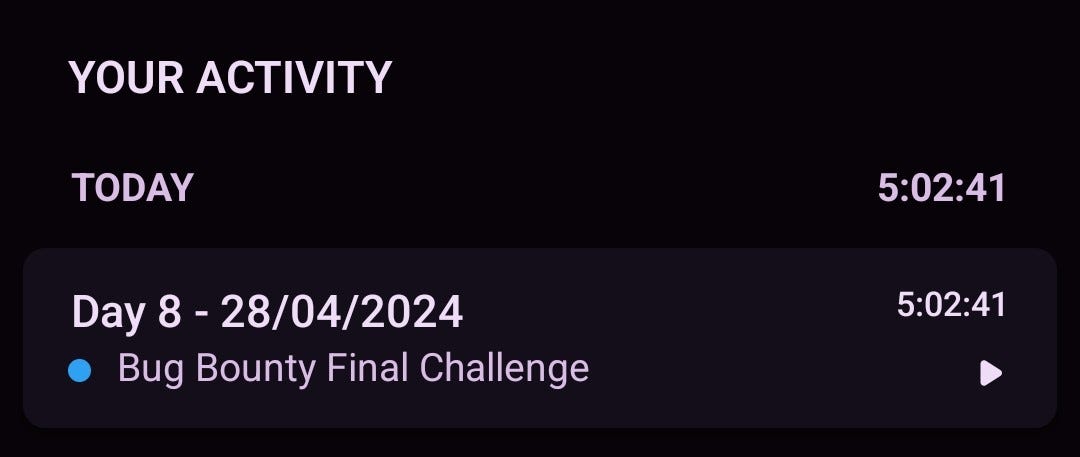BOOK THIS SPACE FOR AD
ARTICLE ADIt’s been a while that I see a lot of people writing about Chat-GPT for optimize recon process and vulnerabilities scan.
In the area of cybersecurity, we can never stop studying, so I’ll show you guys how I use chat-GPT to optimize my studies, and organize my week between work, studies and bug hunting.
Make a schedule
I asked chat-GPT to make a study schedule focusing on web hacking, but, you can change the content for what you want or need to study.
Make me a study schedule, with theoretical and practical content about web hacking, from Monday to Friday, with two hours a day to study
The answer:
Monday:
30 minutes: Introduction to web hacking: Read articles and watch videos about the different types of web attacks, such as cross-site scripting (XSS), SQL injection, and cross-site request forgery (CSRF).
30 minutes: Reconnaissance: Learn about the importance of reconnaissance in web hacking, how to gather information about a target website, and the different tools available for reconnaissance.
1 hour: Practice session: Use the tools learned in the previous section to gather information about a target website and identify potential vulnerabilities.
Tuesday:
30 minutes: Exploitation: Learn about the different techniques used to exploit web vulnerabilities and the tools used for exploitation.
30 minutes: Defense mechanisms: Read about the common defense mechanisms used by websites to prevent attacks and how to bypass them.
1 hour: Practice session: Use the tools and techniques learned in the previous sections to exploit vulnerabilities on a target website.
Wednesday:
30 minutes: Post-exploitation: Learn about what to do after successfully exploiting a web vulnerability, such as escalating privileges and maintaining access.
30 minutes: Web application firewalls (WAFs): Learn about WAFs and how they can be bypassed.
1 hour: Practice session: Practice post-exploitation techniques and WAF bypassing on a target website.
Thursday:
30 minutes: Password cracking: Learn about different password cracking techniques and tools.
30 minutes: Social engineering: Read about how social engineering can be used in web hacking and common social engineering techniques.
1 hour: Practice session: Use password cracking tools and social engineering techniques to gain access to a target website.
Friday:
30 minutes: Reporting: Learn about how to report vulnerabilities responsibly and the importance of doing so.
30 minutes: Web hacking communities: Read about web hacking communities and how to get involved in them.
1 hour: Practice session: Use the knowledge gained throughout the week to find and report vulnerabilities in a target website.
Note that this is just a suggested schedule and can be adjusted based on your own preferences and pace of learning. Good luck with your studies!
Define content
If you don’t know what you are going to study about, you can ask as well
If I want to be good at web hacking, what you recommend me to study about? Make a list of content zero to hero
If you want to become good at web hacking, there are several topics that you should study. Here’s a list of content, starting from the basics and moving towards more advanced topics, that you can follow to become a web hacking expert:
Networking Basics:
Understand the basics of networking and how the internet works
Learn about the OSI model, TCP/IP, and common networking protocols
Web Fundamentals:
Understand how web servers and web applications work
Learn about HTTP requests and responses, HTML, and other web technologies
Web Application Architecture:
Learn about the different components that make up a web application, such as the front-end, back-end, and database
Understand how these components interact with each other and how data flows between them
Web Application Vulnerabilities:
Learn about common web application vulnerabilities, such as SQL injection, cross-site scripting (XSS), and cross-site request forgery (CSRF)
Understand how these vulnerabilities can be exploited and the potential impact they can have on a web application
Penetration Testing:
Learn about penetration testing methodologies and tools
Understand how to identify and exploit web application vulnerabilities using tools such as Burp Suite, Metasploit, and Nmap
Web Application Security:
Learn about web application security best practices, such as input validation, secure coding practices, and secure authentication mechanisms
Understand how to implement these best practices to secure web applications
Advanced Topics:
Learn about advanced web application attacks, such as file inclusion attacks, server-side request forgery (SSRF), and XML external entity (XXE) attacks
Understand how to perform advanced web application testing and exploit these types of vulnerabilities
Reporting and Responsible Disclosure:
Learn about how to report web application vulnerabilities responsibly and how to work with organizations to remediate them
Remember that becoming a web hacking expert takes time and dedication. Start with the basics and work your way up to more advanced topics. Keep practicing and challenging yourself, and you’ll be well on your way to becoming a skilled web hacker.
You can change for everything that you want!
I hope this can help you get organized like it helped me. I’ll come back with some writeups about pentest labs, bug bounty tips and hacking studies. See you soon
.png)
 1 year ago
64
1 year ago
64 














 Bengali (Bangladesh) ·
Bengali (Bangladesh) ·  English (United States) ·
English (United States) ·